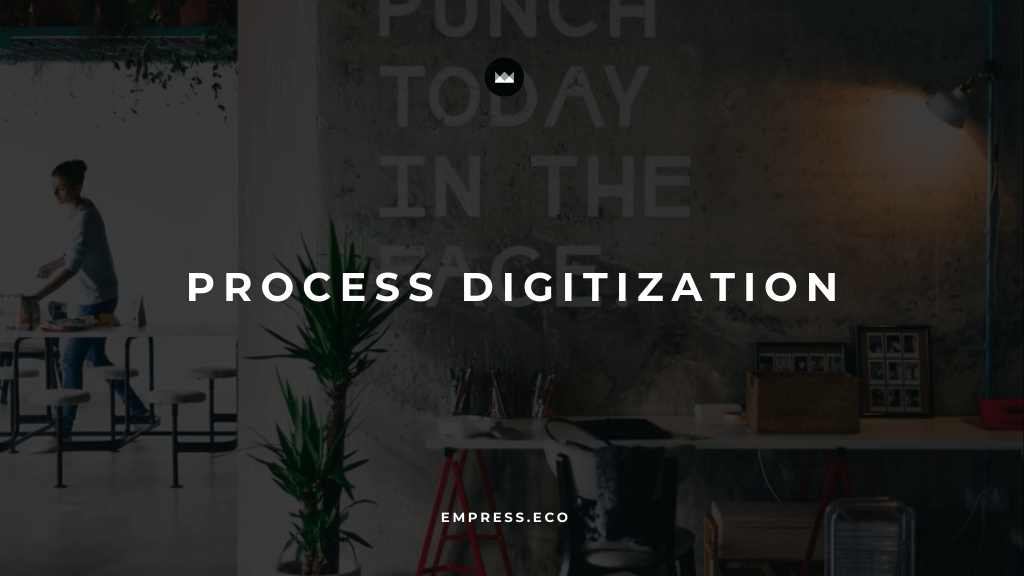Off-the-shelf software often falls short of meeting the unique challenges faced by companies. These challenges require specialized solutions that are as unique as the businesses themselves. This is where custom software development steps in, offering a strategic advantage by providing software tailored specifically to address a company’s unique needs, enhance operational efficiency, and foster innovation. At Aria, we specialize in developing custom software that empowers businesses to overcome their specific challenges and achieve their goals. In this blog, we’ll explore how custom software development can transform your operations and support your strategic growth.
Understanding Custom Software Development
Custom software development is about creating software solutions that are uniquely designed to meet the specific needs of a business. Unlike off-the-shelf software, which is built for a general market and may require significant customization to fit into existing workflows, custom software is built from the ground up with your business in mind. This means every feature, every function, and every integration is crafted to align perfectly with your business processes and objectives.
For example, a logistics company might require a custom tracking system that integrates seamlessly with their existing ERP system, allowing for real-time updates and streamlined operations. Or a healthcare provider might need a patient management system tailored to their specific compliance requirements and workflow. Custom software development addresses these needs in ways that generic software simply can’t.
Key Benefits of Custom Software Development
Custom software development brings a host of benefits that can significantly enhance how your business operates. Let’s dive into some of the key advantages:
- Tailored Solutions
One of the most compelling benefits of custom software is that it’s designed specifically to address the unique challenges your business faces. This means the software aligns perfectly with your business processes, making it more efficient and effective than any off-the-shelf solution. Whether it’s automating a complex workflow or providing a more intuitive user interface for your team, custom software ensures that you’re getting exactly what you need.
For instance, a retail company might struggle with managing inventory across multiple locations. A custom software solution could be developed to provide real-time inventory updates, integrate with point-of-sale systems, and offer predictive analytics to help manage stock levels more effectively. This tailored approach not only solves the problem but also enhances overall operational efficiency.
- Integration and Compatibility
One of the biggest challenges businesses face when implementing new software is ensuring it integrates smoothly with existing systems. Custom software is built with your current IT environment in mind, ensuring compatibility and seamless data flow across various business functions. This integration eliminates data silos, enhances communication, and ensures that all your systems work together harmoniously.
For example, a financial services firm might require custom software that integrates with its existing accounting software, CRM, and compliance systems. The result is a cohesive environment where data flows smoothly between systems, reducing manual entry, errors, and inefficiencies.
- Scalability and Flexibility
As your business grows and evolves, so too do your software needs. Custom software is designed to scale with your business, allowing you to add new features, integrate with new systems, or expand capacity as needed. This flexibility ensures that your software remains relevant and effective, providing a long-term return on investment.
Consider a startup in the tech industry that begins with a small team and limited resources. As the company grows, its software needs will evolve, requiring more robust features and integrations. Custom software can adapt to these changing needs, growing alongside the business and supporting its expansion.
- Enhanced Performance and Efficiency
Custom software is designed to streamline operations by automating repetitive tasks and optimizing workflows. This not only reduces the time and effort required to complete tasks but also improves overall performance and productivity. With custom software, businesses can focus their resources on strategic initiatives rather than being bogged down by inefficient processes.
For example, a manufacturing company might implement custom software to automate the scheduling of production runs, track inventory levels in real-time, and generate reports on machine performance. This automation frees up employees to focus on more strategic tasks, such as improving product quality or exploring new market opportunities.
- Competitive Advantage
In a crowded marketplace, having a unique capability can set you apart from the competition. Custom software provides businesses with tools and features that are specifically designed to give them an edge. Whether it’s a unique customer-facing application, a more efficient internal process, or a better way to analyze data, custom software can be a key differentiator that helps your business stand out.
For instance, an e-commerce company might develop a custom recommendation engine that uses machine learning to provide personalized product suggestions to customers. This feature not only improves the shopping experience but also increases sales and customer loyalty, providing a competitive edge in the market.
Implementing Custom Software Development
Successfully developing custom software requires careful planning and execution. Here are some strategies to ensure your project meets your business’s unique needs:
- Identify Key Challenges and Requirements
Before diving into development, it’s crucial to clearly define the challenges your business is facing and the requirements for the software. This involves assessing current pain points, such as inefficient processes, lack of integration between systems, or inadequate data analysis capabilities. By identifying these challenges, you can ensure that the software is designed to address them effectively.
For example, if your business struggles with slow customer response times, you might need a custom CRM system that provides instant access to customer data, automates follow-ups, and integrates with your communication tools. Clearly defining these needs will guide the development process and ensure that the final product meets your expectations.
- Collaborate with Stakeholders
Engaging key stakeholders throughout the development process is essential for creating software that meets the needs of all users. This includes not only the IT team but also end-users, managers, and other relevant parties. Their input is invaluable in shaping a solution that is practical, user-friendly, and aligned with business goals.
For example, if you’re developing a custom project management tool, involving project managers and team members in the design process ensures that the software includes features that meet their daily needs, such as task tracking, reporting, and collaboration tools. This collaboration leads to higher user satisfaction and better adoption rates.
- Choose the Right Development Partner
Partnering with an experienced software development firm is critical to the success of your project. Look for a partner with a proven track record in delivering custom solutions, particularly in your industry. Their expertise will help you navigate technical complexities, avoid common pitfalls, and ensure that the software is delivered on time and within budget.
At Aria, we pride ourselves on our ability to develop custom software that meets the unique needs of our clients. Our team of skilled developers, designers, and project managers work closely with you to ensure that every aspect of the software aligns with your business goals.
- Focus on User Experience
A well-designed user interface (UI) and user experience (UX) are crucial for the success of any software application. Even the most powerful software can fall short if it’s difficult to use or doesn’t align with user expectations. Focusing on UX ensures that the software is intuitive, accessible, and meets the needs of its users.
For example, a custom inventory management system might include a dashboard that provides real-time updates on stock levels, easy-to-use search and filter functions, and customizable reports. By prioritizing UX, you ensure that users can quickly and efficiently accomplish their tasks, leading to higher productivity and satisfaction.
- Test and Iterate
Thorough testing is essential to ensure that your custom software is free of bugs and performs as expected. This involves multiple stages of testing, including unit testing, integration testing, and user acceptance testing (UAT). By involving end-users in the testing process, you can gather valuable feedback and make iterative improvements to the software.
For example, during UAT, users might identify areas where the software could be more intuitive or where additional features would be beneficial. Incorporating this feedback into the final product ensures that the software not only meets technical requirements but also delivers a positive user experience.
Challenges and Considerations
While custom software development offers numerous benefits, it also comes with its own set of challenges. Here are some considerations to keep in mind:
- Resource Investment
Developing custom software requires a significant investment of time, money, and expertise. The development process can be lengthy, and unexpected challenges can arise, requiring additional resources. It’s important to plan accordingly and ensure that you have the necessary budget and resources to see the project through to completion.
For example, the scope of the project might expand as new requirements are identified during development, leading to increased costs. By setting a clear budget and timeline from the outset, and regularly reviewing progress, you can manage these challenges effectively.
- Change Management
Introducing custom software often requires changes to existing workflows and processes, which can lead to resistance from employees. Effective change management is essential to ensure smooth adoption and to help users understand the benefits of the new system.
For instance, providing training sessions, user manuals, and ongoing support can help ease the transition and encourage adoption. Additionally, involving employees in the development process can help them feel more invested in the new system, reducing resistance.
- Ongoing Maintenance and Support
Custom software isn’t a one-time project—it requires ongoing maintenance to ensure it remains secure, up-to-date, and aligned with your business needs. This includes regular updates, security patches, and potentially adding new features as your business evolves. Planning for ongoing support is crucial to the long-term success of your software.
For example, as your business grows, you might need to scale the software to handle more users or integrate with additional systems. Having a support plan in place ensures that your software can adapt to these changes without disruption.
Conclusion
Custom software development is a powerful tool for businesses looking to address unique challenges and drive innovation. By developing tailored solutions that enhance performance and integrate seamlessly with existing systems, companies can achieve strategic growth and maintain a competitive edge. In a world where one-size-fits-all solutions often fall short, custom software offers the flexibility, scalability, and precision needed to meet the specific demands of your business.
At Aria, we’re dedicated to helping our clients unlock the full potential of custom software. Whether you’re looking to streamline operations, improve customer experiences, or gain a competitive advantage, we’re here to guide you through the process and ensure that your software meets your business’s unique needs.
So, are you ready to transform your business with custom software? Let’s work together to develop a solution that drives your success and supports your growth for years to come.



